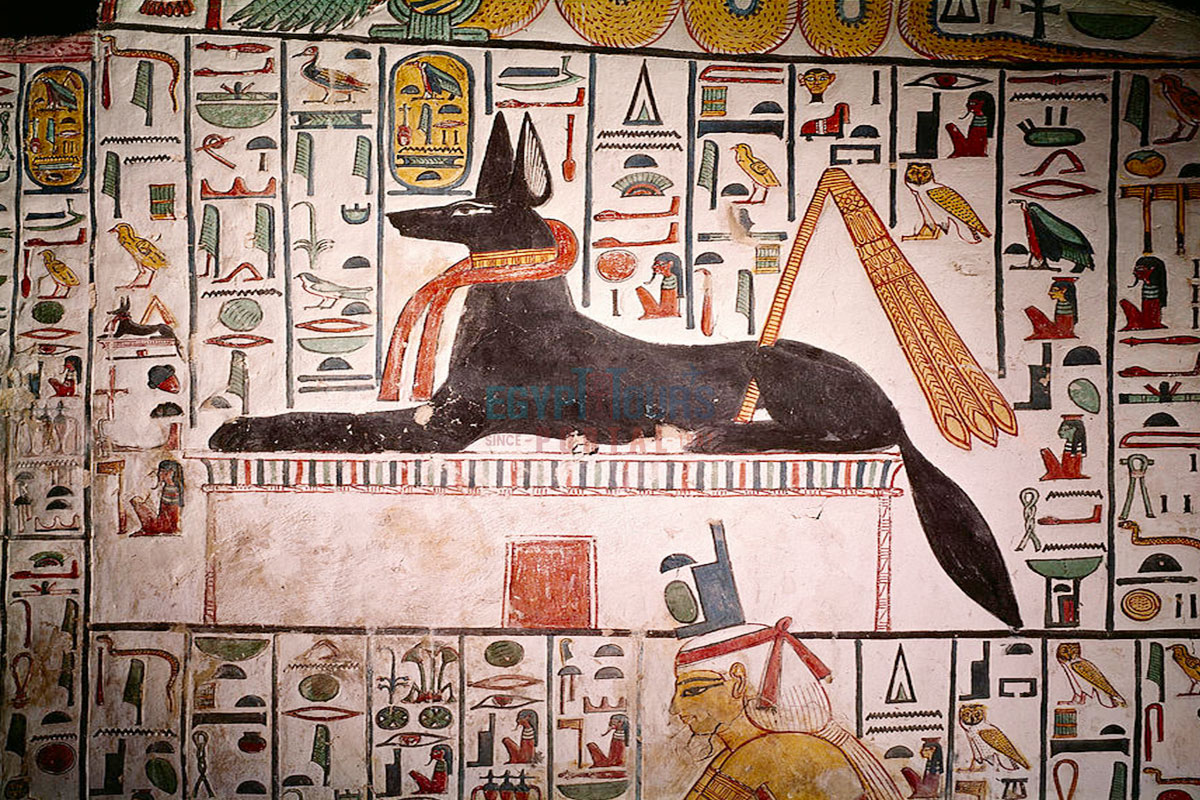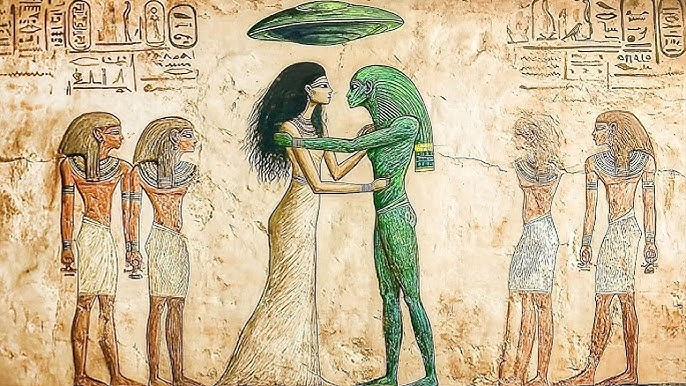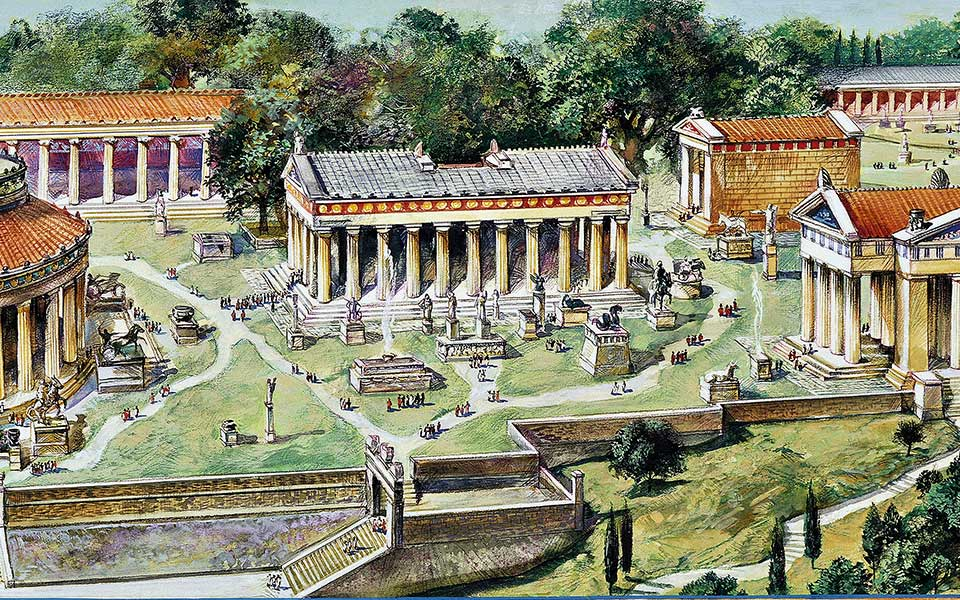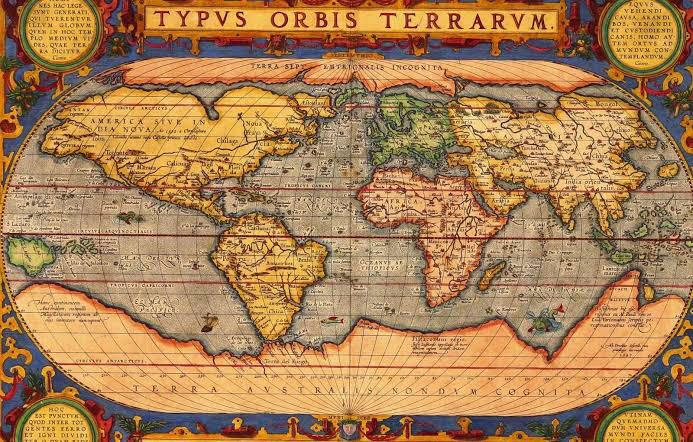The figure of Alexander the Great has long been a focal point of historical inquiry, captivating scholars and enthusiasts alike. While his military conquests and empire-building endeavors are extensively chronicled, the intricacies of his character remain a subject of scholarly debate and fascination. This article endeavors to provide a nuanced exploration of Alexander's personality, drawing upon a comprehensive review of historical accounts, primary sources, and contemporary scholarly interpretations. By examining key facets of his character, including ambition, leadership style, strategic acumen, intellectual pursuits, ruthlessness, fiery temperament, and the complexities inherent in his persona, this study seeks to elucidate the multifaceted nature of Alexander the Great and the enduring impact of his legacy on human history.
Introduction: Alexander the Great stands as a towering figure in the annals of human history, his conquests and achievements serving as a testament to the indomitable spirit of human ambition. However, behind the veil of conquest lies a complex and enigmatic personality, one that defies simplistic categorization. This dissertation embarks upon a scholarly journey to unravel the intricacies of Alexander's character, exploring the interplay between ambition, leadership, intellect, and temperament that shaped his remarkable life and legacy.
Chapter 1: Ambition and Vision At the heart of Alexander's persona lay an insatiable ambition, a relentless drive to carve out a vast empire that transcended the boundaries of the known world. This chapter delves into the depths of Alexander's ambition, tracing its roots in his upbringing, education, and the cultural milieu of ancient Greece. Moreover, it examines the grand vision that propelled Alexander beyond mere conquest, toward the lofty goal of disseminating Greek culture and civilization across the vast expanses of his empire, ushering in what would come to be known as the Hellenistic Age.
Roots of Ambition: Alexander's upbringing played a pivotal role in shaping the trajectory of his ambition. Born in 356 BC to King Philip II of Macedon and Queen Olympias, Alexander was heir to a kingdom poised on the brink of expansion. From an early age, he was steeped in the martial ethos of Macedonian royalty, instilled with a sense of destiny and entitlement to greatness. His tutelage under the famed philosopher Aristotle further fueled his intellectual curiosity and imbued him with a vision of cultural and intellectual hegemony.
Educational Influences: The educational milieu of ancient Greece provided fertile ground for the cultivation of Alexander's ambition. Under the guidance of Aristotle, Alexander received a rigorous education encompassing philosophy, rhetoric, and literature, instilling in him a deep appreciation for the intellectual and cultural achievements of Greek civilization. Aristotle's teachings, coupled with exposure to the works of Homer and other luminaries of Greek literature, imbued Alexander with a sense of cultural superiority and a conviction in the mission to spread Greek civilization to the farthest reaches of the known world.
Cultural Milieu: The broader cultural context of ancient Greece also played a pivotal role in shaping Alexander's ambition. The concept of arete, or excellence, permeated Greek society, fostering a competitive spirit and a relentless pursuit of glory and renown. In the pantheon of Greek heroes, figures such as Achilles and Heracles served as exemplars of martial valor and divine favor, inspiring Alexander to emulate their feats and surpass their legendary exploits.
Grand Vision: Beyond the mere accumulation of territory, Alexander harbored a grand vision of transforming the world in the image of Greece. His conquests were not merely acts of territorial expansion but were driven by a messianic zeal to disseminate Greek culture, language, and civilization across the vast expanses of his empire. This vision, encapsulated in the concept of the Hellenistic Age, envisioned a world unified under the banner of Greek ideals, where art, philosophy, and science flourished in harmony.
Conclusion: In conclusion, the chapter on ambition and vision elucidates the profound depths of Alexander's driving force, tracing its origins to the formative influences of his upbringing, education, and the cultural milieu of ancient Greece. From the lofty heights of intellectual aspiration to the relentless pursuit of conquest, Alexander's ambition propelled him toward a grand vision of global hegemony, leaving an indelible mark on the course of human history.
Chapter 2: Charisma and Leadership Central to Alexander's meteoric rise to power was his extraordinary charisma and exemplary leadership qualities. This chapter meticulously dissects the dynamics of Alexander's leadership style, analyzing his interactions with subordinates, peers, and adversaries alike. Through a synthesis of historical narratives and contemporary scholarly insights, it elucidates the sources of Alexander's magnetic appeal and the profound impact of his leadership on the course of ancient history.
Charismatic Aura: From the outset of his career, Alexander exuded an aura of charisma that captivated those around him. His physical presence, coupled with an aura of confidence and charisma, commanded respect and admiration from both allies and foes alike. Whether addressing his troops on the eve of battle or negotiating with rival rulers, Alexander possessed a magnetic charm that inspired unwavering loyalty and allegiance.
Visionary Leadership: Central to Alexander's leadership style was his ability to articulate a compelling vision that transcended the immediate exigencies of warfare. Unlike many of his contemporaries, who pursued conquest for the sake of personal glory or territorial gain, Alexander articulated a vision of a unified world under the banner of Greek civilization. This visionary zeal imbued his military campaigns with a sense of purpose and destiny, rallying troops to march ever onward in pursuit of a lofty ideal.
Lead by Example: One of Alexander's most enduring legacies as a leader was his propensity to lead by example. Unlike many rulers who delegated command to subordinates and remained aloof from the rigors of warfare, Alexander often placed himself at the vanguard of his armies, leading from the front lines with courage and valor. This willingness to share in the hardships and dangers of battle endeared him to his soldiers, fostering a sense of camaraderie and shared purpose that transcended the traditional hierarchies of command.
Inspiring Loyalty: Perhaps the most remarkable aspect of Alexander's leadership was his ability to inspire unwavering loyalty and devotion among his followers. Despite the immense challenges and hardships they faced, Alexander's soldiers remained steadfast in their allegiance, willing to endure privation and peril in pursuit of their leader's vision. This profound bond of loyalty formed the bedrock of Alexander's military success, enabling him to achieve feats that surpassed the wildest dreams of his contemporaries.
Historical Impact: The impact of Alexander's leadership reverberated far beyond the confines of his own lifetime, shaping the course of ancient history in profound and enduring ways. His conquests laid the foundation for the spread of Greek culture and civilization throughout the known world, ushering in an era of unprecedented cultural exchange and synthesis. Moreover, his example served as a model for future generations of leaders, inspiring countless imitators who sought to emulate his military prowess and charismatic authority.
Conclusion: In conclusion, the chapter on charisma and leadership offers a nuanced analysis of the qualities that distinguished Alexander as one of history's most charismatic and influential leaders. From his magnetic aura and visionary zeal to his willingness to lead by example and inspire unwavering loyalty, Alexander's leadership style epitomized the ideal of the charismatic ruler whose influence transcends the bounds of mere mortal ambition.
Chapter 3: Strategic Genius Alexander's military campaigns are the stuff of legend, characterized by audacity, innovation, and strategic brilliance. This chapter embarks upon a comprehensive examination of Alexander's military strategies and tactics, dissecting key battles and conquests to unravel the intricate web of his strategic thinking. By delving into the operational artistry that underpinned Alexander's triumphs on the battlefield, this chapter illuminates the enduring legacy of his military genius.
Master of Maneuver: At the heart of Alexander's military prowess lay his mastery of maneuver warfare. Unlike the static, attritional tactics favored by many of his contemporaries, Alexander embraced a fluid and dynamic approach to warfare, capitalizing on mobility, speed, and surprise to outmaneuver and outflank his adversaries. From the lightning-fast movements of his cavalry to the audacious river crossings and flanking maneuvers that characterized his campaigns, Alexander demonstrated an unparalleled ability to seize the initiative and dictate the course of battle.
Innovative Tactics: In addition to his mastery of maneuver, Alexander was renowned for his innovative tactics and adaptive strategies. Whether facing off against numerically superior foes or navigating the challenges of unfamiliar terrain, Alexander displayed a remarkable capacity for creative problem-solving and tactical improvisation. From the use of feints and decoys to the deployment of combined arms tactics integrating infantry, cavalry, and siege engines, Alexander employed a diverse array of tactics tailored to the exigencies of each battlefield.
Battlefield Exploitation: One of the hallmarks of Alexander's military genius was his ability to exploit opportunities and capitalize on the weaknesses of his adversaries. Whether exploiting gaps in enemy lines, exploiting disunity among opposing coalitions, or capitalizing on the vulnerabilities of fortified positions, Alexander demonstrated a keen eye for the exploitation of strategic advantage. His victories at battles such as Issus, Gaugamela, and the Siege of Tyre stand as shining examples of his ability to leverage battlefield dynamics to achieve decisive outcomes.
Strategic Vision: Beyond the tactical realm, Alexander possessed a strategic vision that transcended the immediate exigencies of warfare. From the outset of his campaigns, he articulated clear objectives and overarching goals that guided his military endeavors. Whether seeking to secure his flanks, neutralize rival centers of power, or project power into distant regions, Alexander's strategic vision provided a framework for the execution of his military campaigns and the realization of his imperial ambitions.
Enduring Legacy: The legacy of Alexander's military genius extends far beyond the confines of his own era, leaving an indelible imprint on the annals of military history. His innovative tactics, strategic vision, and mastery of maneuver continue to inspire military theorists and practitioners to this day, serving as timeless exemplars of operational artistry and martial prowess. Moreover, his conquests laid the groundwork for the spread of Hellenistic culture and the fusion of East and West, shaping the course of world history for centuries to come.
Conclusion: In conclusion, the chapter on strategic genius offers a comprehensive examination of Alexander's military prowess, delving into the intricacies of his operational artistry and the enduring legacy of his martial achievements. From innovative tactics and strategic vision to battlefield exploitation and enduring influence, Alexander's military genius remains a beacon of inspiration for students of warfare and historians alike.
Chapter 4: Intellectual Curiosity Beyond the realm of warfare, Alexander exhibited a voracious appetite for intellectual pursuits, nurtured by his tutelage under the esteemed philosopher Aristotle. This chapter explores the intellectual dimensions of Alexander's persona, tracing his engagement with philosophy, science, and literature. Through an analysis of his cultural milieu and educational background, it elucidates the profound influence of intellectual curiosity on Alexander's worldview and governance.
Tutelage under Aristotle: One of the defining features of Alexander's intellectual development was his tutelage under the renowned philosopher Aristotle. As the son of King Philip II of Macedon, Alexander received a privileged education, which included instruction from some of the greatest minds of his time. Under Aristotle's guidance, Alexander was exposed to a wide array of subjects, ranging from philosophy and ethics to natural science and literature. Aristotle's teachings instilled in Alexander a love of learning and a critical mindset that would shape his intellectual pursuits throughout his life.
Philosophical Interests: Alexander's intellectual curiosity extended to the realm of philosophy, where he grappled with fundamental questions about the nature of existence, morality, and the human condition. Inspired by the teachings of Aristotle and the works of philosophers such as Plato and Heraclitus, Alexander developed a philosophical outlook that informed his approach to governance and leadership. While his military exploits often overshadowed his philosophical interests, Alexander's letters and speeches reveal a thoughtful and introspective leader who pondered the complexities of life and power.
Scientific Endeavors: In addition to philosophy, Alexander demonstrated an interest in the natural sciences, particularly in the fields of geography, botany, and zoology. During his military campaigns, Alexander embarked on scientific expeditions that sought to document the flora, fauna, and geographical features of the lands he conquered. His patronage of scholars and scientists further facilitated the exchange of knowledge and ideas between East and West, contributing to the advancement of scientific understanding in both regions.
Literary Patronage: As a patron of the arts and letters, Alexander played a pivotal role in the dissemination of Greek culture and literature throughout his empire. Under his patronage, poets, writers, and scholars flourished, producing a rich body of literature that celebrated Alexander's achievements and extolled the virtues of Greek civilization. Moreover, Alexander's promotion of the Greek language as a lingua franca facilitated communication and cultural exchange among the diverse peoples of his empire, fostering a spirit of cosmopolitanism and intellectual exchange.
Influence on Governance: The intellectual pursuits of Alexander exerted a profound influence on his approach to governance and administration. Drawing upon the wisdom of philosophers and scholars, Alexander sought to create a just and enlightened empire that transcended ethnic and cultural divisions. His policies promoted religious tolerance, encouraged the exchange of ideas, and fostered a spirit of cultural synthesis that laid the foundation for the Hellenistic Age.
Conclusion: In conclusion, the chapter on intellectual curiosity provides a nuanced exploration of Alexander's intellectual pursuits and cultural interests, revealing a leader whose thirst for knowledge transcended the boundaries of warfare. From his tutelage under Aristotle to his patronage of the arts and sciences, Alexander's intellectual legacy endures as a testament to the power of curiosity and the transformative potential of ideas.
Chapter 5: Ruthlessness and Fiery Temper However, alongside his virtues, Alexander's character was marked by shades of ruthlessness and a tempestuous temper. This chapter confronts the darker aspects of Alexander's personality, examining instances of brutality and vindictiveness in his pursuit of power. Through a critical lens, it evaluates the ethical dimensions of Alexander's actions and their ramifications on his historical legacy.
Acts of Ruthlessness: Throughout his conquests, Alexander displayed a willingness to employ ruthless tactics in pursuit of his objectives. From the massacre of civilians at Thebes to the brutal suppression of revolts in conquered territories, Alexander's reign was marked by instances of violence and bloodshed. His treatment of defeated enemies was often harsh and unforgiving, with executions, enslavement, and forced resettlement being common tactics employed to quell dissent and maintain control.
Vindictive Behavior: Alexander's fiery temper and vindictive streak were evident in his interactions with perceived enemies and rivals. Instances of real or imagined betrayal often elicited swift and severe retribution, with Alexander showing little mercy to those who dared to challenge his authority. From the execution of potential rivals within his own court to the ruthless pursuit of vengeance against those who crossed him, Alexander's vindictiveness left a trail of destruction in its wake.
Ethical Considerations: The ethical dimensions of Alexander's actions have been the subject of debate among historians and scholars. While some argue that Alexander's ruthless tactics were justified by the exigencies of ancient warfare and the need to maintain control over a vast and diverse empire, others contend that his actions crossed moral boundaries and tarnished his legacy. The indiscriminate slaughter of civilians, the destruction of cities, and the brutal treatment of conquered peoples raise troubling questions about the ethical implications of Alexander's conquests.
Historical Legacy: The legacy of Alexander's ruthlessness and fiery temper continues to cast a shadow over his historical reputation. While his military achievements and cultural contributions are widely celebrated, his willingness to resort to violence and cruelty in pursuit of power has led some to question the extent of his greatness. In the annals of history, Alexander's legacy remains a complex and contested terrain, with admirers and detractors alike grappling with the ethical ambiguities of his reign.
Critical Evaluation: In evaluating Alexander's character, it is essential to adopt a critical stance that acknowledges both his virtues and his flaws. While his military genius and visionary leadership are undeniable, it is equally important to reckon with the darker aspects of his personality and their implications for his historical legacy. By confronting the complexities of Alexander's character with honesty and nuance, we can gain a deeper understanding of the man behind the myth and the enduring impact of his reign on the course of human history.
Conclusion: In conclusion, the chapter on ruthlessness and fiery temper provides a sobering exploration of the darker facets of Alexander's character, confronting the ethical dilemmas posed by his ruthless tactics and vindictive behavior. By critically evaluating the ramifications of his actions, we can gain a more nuanced perspective on Alexander's historical legacy and the enduring complexities of his reign.
Chapter 6: Complex Personality In summation, Alexander the Great emerges as a figure of remarkable complexity, embodying both the loftiest aspirations of human ambition and the darkest impulses of unchecked power. This concluding chapter endeavors to reconcile the disparate facets of Alexander's character, offering a nuanced portrait that transcends simplistic dichotomies. By navigating the labyrinthine depths of his personality, it seeks to illuminate the enduring enigma of Alexander the Great and the enduring resonance of his legacy in the annals of human history.
Ambition and Idealism: At the heart of Alexander's character lay an insatiable ambition and idealism that drove him to pursue grandiose dreams of conquest and empire-building. His vision of a unified world under the banner of Greek civilization spoke to his belief in the transformative power of culture and enlightenment. Yet, this ambition was tempered by a profound sense of destiny and entitlement that sometimes veered into hubris, leading Alexander to overreach and court disaster.
Leadership and Charisma: Alexander's leadership style was characterized by a potent blend of charisma, inspiration, and audacity that endeared him to his followers and struck fear into the hearts of his enemies. His ability to inspire unwavering loyalty and devotion enabled him to overcome formidable odds and achieve feats that surpassed the wildest dreams of his contemporaries. Yet, this magnetic charisma could also manifest as a tyrannical streak, leading Alexander to demand unquestioning obedience and ruthlessly suppress dissent.
Intellectual Curiosity and Enlightenment: Beyond the battlefield, Alexander exhibited a voracious appetite for intellectual pursuits and cultural exchange, nurturing a cosmopolitan worldview that transcended ethnic and cultural boundaries. His patronage of scholars, scientists, and artists facilitated the exchange of ideas and the synthesis of diverse cultures, laying the groundwork for the flourishing of the Hellenistic Age. Yet, this intellectual curiosity could sometimes be overshadowed by a thirst for conquest and a disregard for the suffering of those who stood in his path.
Ruthlessness and Temperament: Alexander's darker tendencies were evident in his capacity for ruthlessness and fiery temperament, which could manifest in acts of brutality and vindictiveness. His willingness to employ violence and coercion in pursuit of power left a trail of destruction in his wake, tarnishing his legacy and eliciting condemnation from some quarters. Yet, this ruthlessness was also tempered by moments of compassion and magnanimity, revealing the complexity and contradictions inherent in Alexander's character.
Legacy and Enigma: In assessing Alexander's legacy, we are confronted with an enduring enigma that defies easy categorization. His conquests reshaped the map of the ancient world and laid the foundation for the spread of Greek culture and civilization. Yet, his legacy is also fraught with controversy and ambiguity, as scholars and historians grapple with the ethical implications of his actions and the enduring impact of his reign. By navigating the labyrinthine depths of his personality, we can begin to unravel the mysteries of Alexander the Great and appreciate the enduring resonance of his legacy in the annals of human history.
Conclusion: In conclusion, Alexander the Great emerges as a figure of unparalleled complexity, whose life and legacy continue to fascinate and confound scholars and enthusiasts alike. By reconciling the disparate facets of his character and navigating the complexities of his reign, we can gain a deeper appreciation for the enduring enigma of Alexander the Great and the enduring resonance of his legacy in the annals of human history.
In conclusion, the persona of Alexander the Great remains an inexhaustible wellspring of scholarly inquiry and fascination. Through a multidimensional exploration of his character, this dissertation has endeavored to shed light on the complexities inherent in his personality and the enduring impact of his legacy on the tapestry of human history. From the heights of ambition to the depths of ruthlessness, Alexander's journey serves as a testament to the complexities of the human condition and the inexorable march of time.
References:
https://www.jstor.org/stable/4434421
https://www.jstor.org/stable/4434864
https://www.jstor.org/stable/4436444
https://dinitrandu.com/wp-content/uploads/2018/10/Alex-tex-and-translations.pdf







